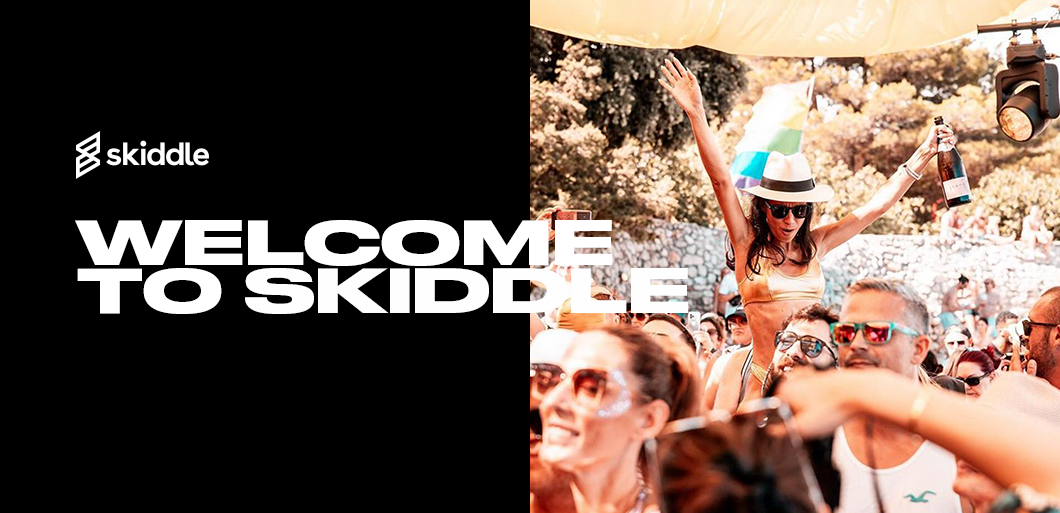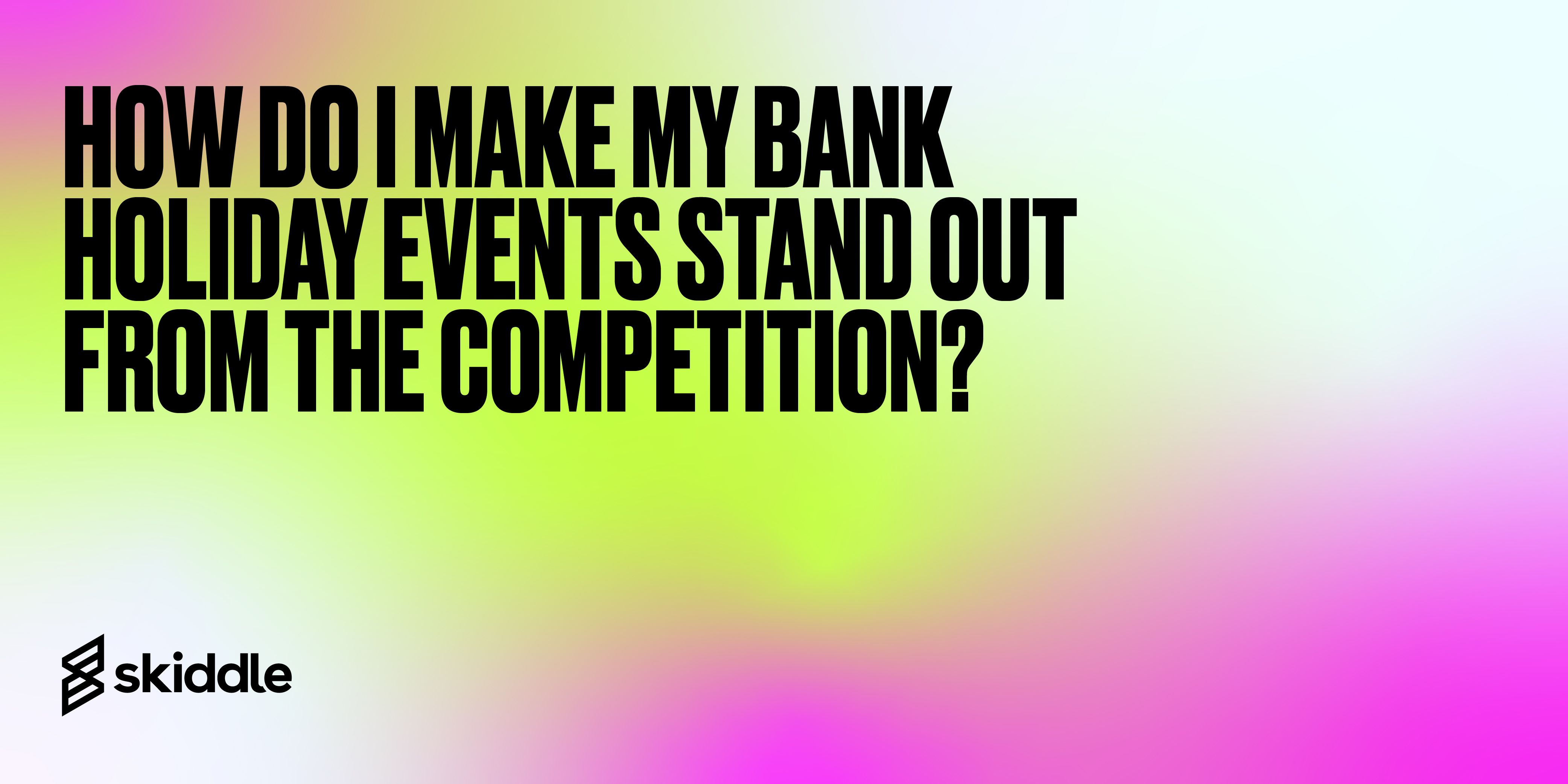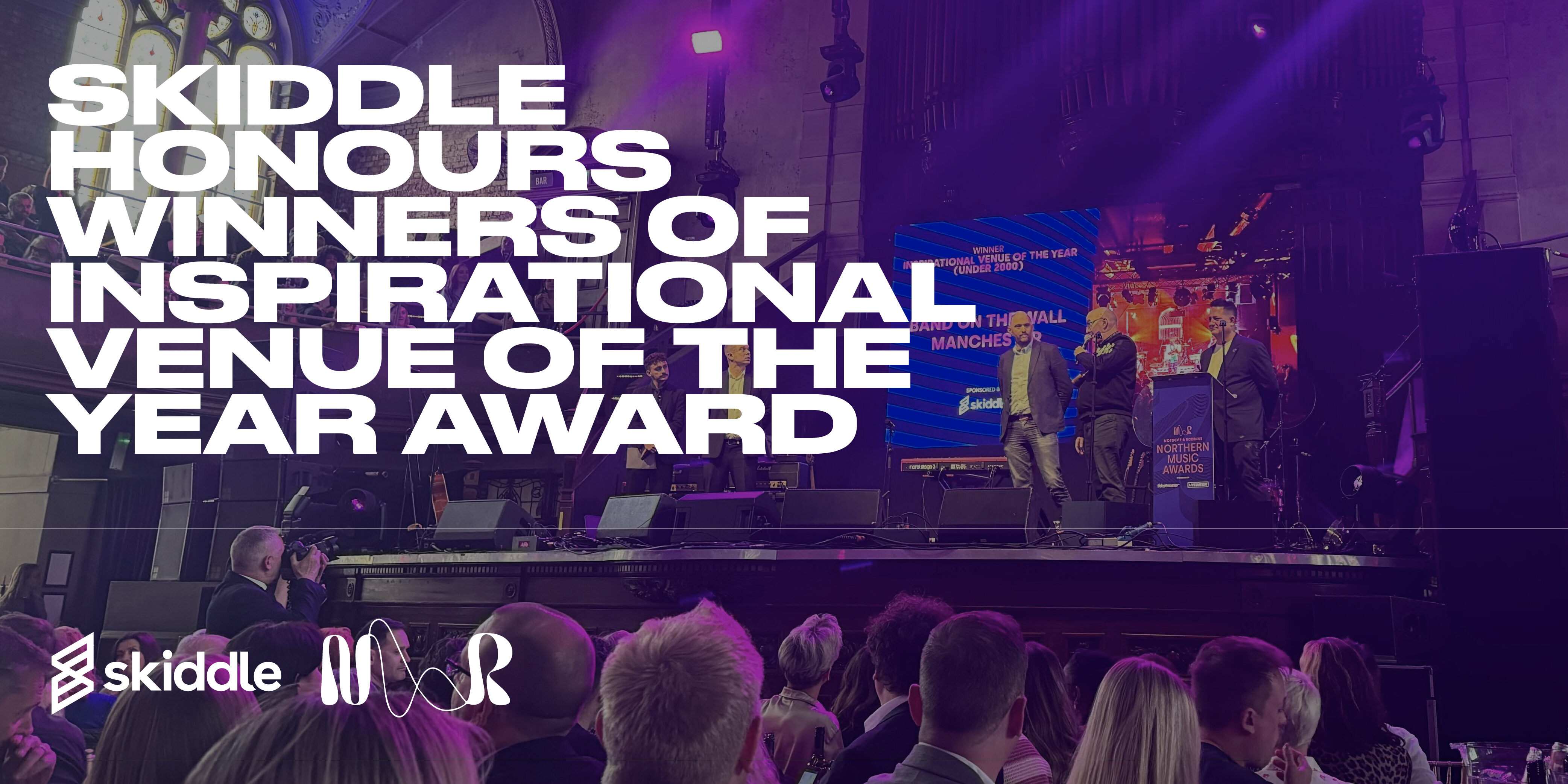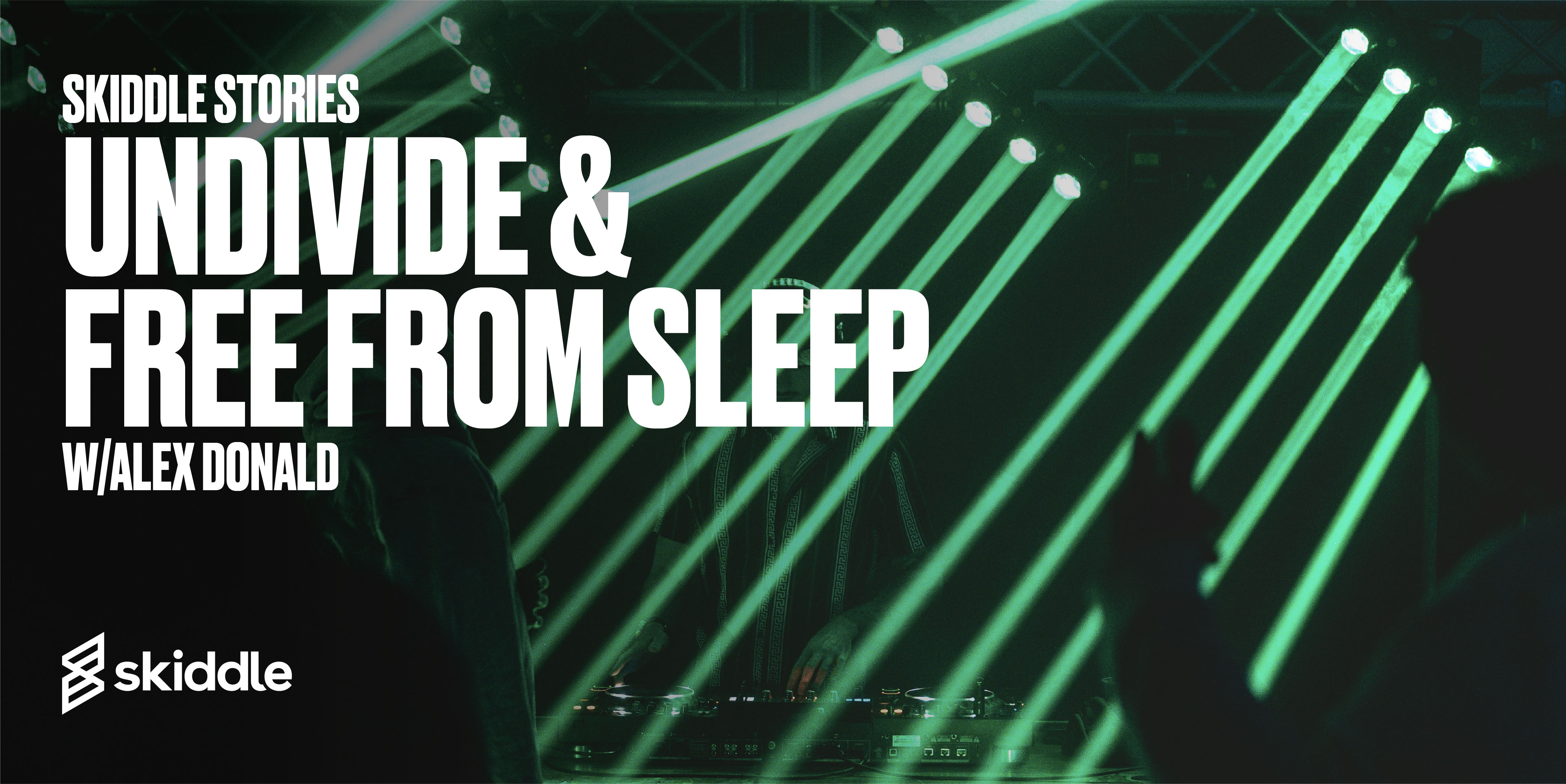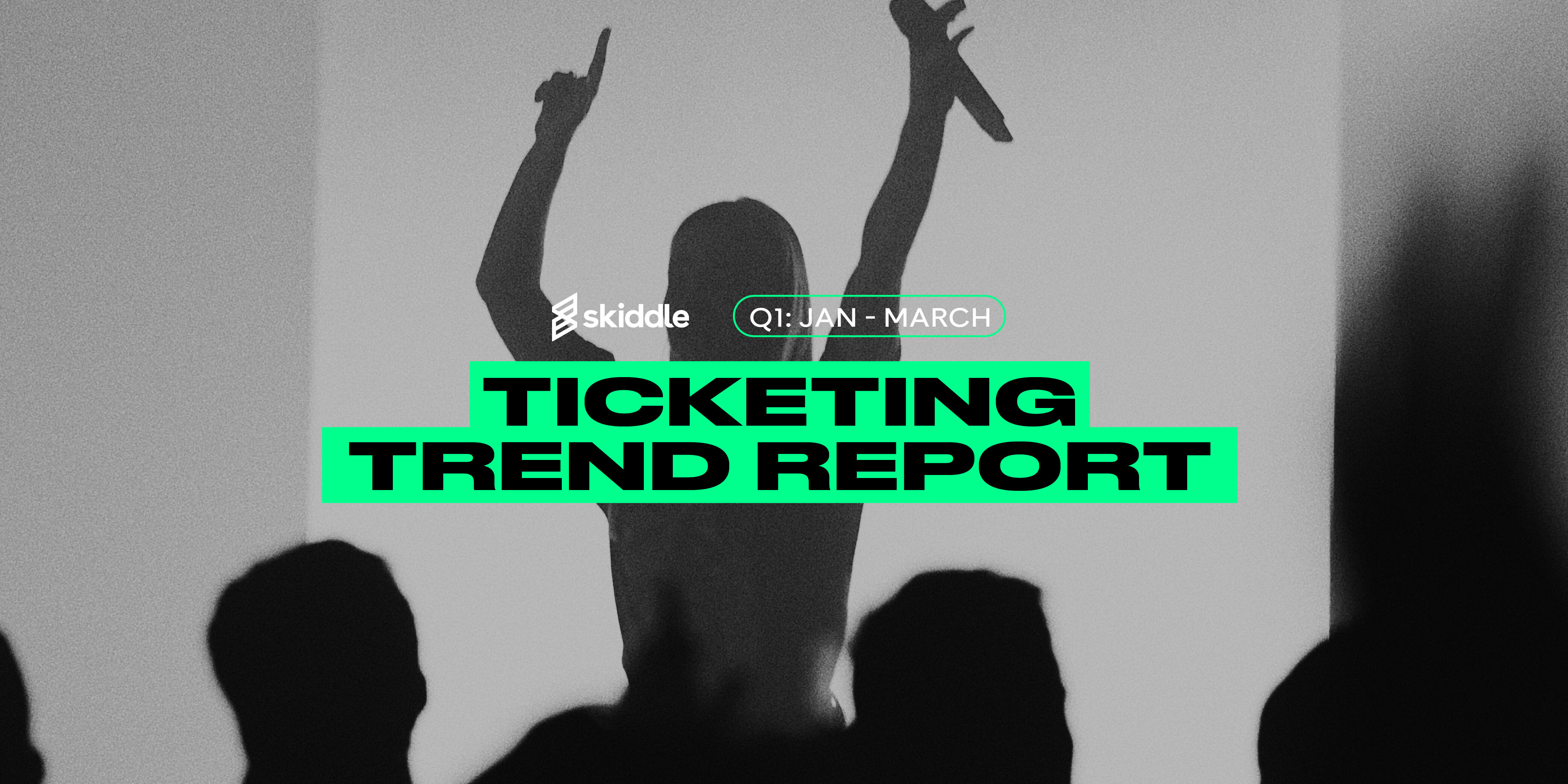- Behind the Scenes
15 Years of Un-Convention: An Interview with the conference founder, Jeff Thompson
-
By Ryan Moss
- 04 Oct 2023
- 24 min read

Ahead of this year’s Un-Convention music industry conference in Manchester, we caught up with its founder, the affable bearded man bringing together the various sectors of the industry and the devoted professionals who operate within it – Jeff Thompson.
Digging deep into the origins of the conference – which takes place over Friday the 20th and Saturday the 21st of October and celebrates its impressive 15th anniversary this year – whilst looking to the future and uncovering what guests at this year’s event can expect to find, check out the full interview below to learn more about one of the UK’s longest running music industry events.
This year marks the 15th anniversary of Un-Convention. How has the event changed since its first outing? How did the idea for a conference first come about and how has it developed over the years?
“The conference started back in 2008 when a bunch of record labels and people working in the independent sector at the time thought it would be a good idea to get together to talk about the challenges we faced and to share what we knew. I think before that, we often found there was quite a siloed attitude in the industry, almost as though everyone else, other record labels, promoters and so on, were all just seen as competition, and people were quite protective of the insights they’d gained and their contacts. But at that time, the industry, especially on the recorded side of things, was really unsure of how things were going to progress and as a result, I think we all started to realise that there was strength in numbers, and we could all benefit from sharing and collaborating. In the early days of Un-Convention, we ran with the strapline ‘Do It Together’ which I think sums it up and still applies today.
“As far as how the event has changed, to be honest, the motivation and impetus are the same today. It’s pretty tough sometimes working in the independent music sector, so just being able to spend some time together with other people who also put on shows, release records, or are trying to build fanbases is really valuable. Even just reassuring one another that it is tough and that we’re in it together is an important part of the whole thing. Obviously, in terms of what gets discussed, quite a bit has changed in the industry over the last 15 years, technological developments are keeping everyone on their toes, and I think most of us are trying to work out stuff around fan behaviour and the attention economy, but ultimately the underlining narrative is the same, we’re all just trying to make exciting things happen, and support the music we love.”
Un-Convention events are geared towards bringing together industry pros, key figures and well-known organisations operating in live music, to discuss ongoing challenges facing the sector and to find solutions. In your experience, how has the landscape changed, for better or for worse, since Un-Convention’s very first instalment back in 2008?
“In 2008 a lot of the conversation was about things like music piracy and whether people still valued music. On the recorded side there’s been quite a journey over the last 15 years as things have shifted from ownership to access, and of course, that sector is now really booming, although whether the artists themselves are seeing the full benefit of that is very much open to debate. Similarly, another big shift has been in how artists can directly reach their audiences nowadays. The internet has changed so many things for musicians, and those who support them and over the years we’ve certainly covered a lot about that, both good and bad. There is so much music released nowadays that it can be challenging to know how to make an impact, but equally, the ability to really connect with people and build an entire world around your music as an artist is a real possibility for anyone. We have The Lottery Winners speaking at this year’s event and I think they are an incredible example of that.
“The issues we are currently talking about a lot at the moment are often around grassroots live scenes. A lot of venues are struggling, and coming off the back of the pandemic and the cost-of-living crisis that we’re still going through it feels like much more support is needed. It comes up a lot on panels how the grassroots shoulders so much of the risk in the industry, develops talent and takes chances on new things, and so little of that is then reflected in the revenue that comes in. We work a lot with organisations like the Music Venue Trust who are really focussed on getting people to better understand the value of these venues. Equally, things like whether enough money is getting to the artists themselves is a common theme, perhaps even more so now than when we started, so again we bring together organisations like the Musicians’ Union, Featured Artists Coalition, and Music Managers Forum to look at those things, along with campaigns like BrokenRecord.”
“Simply put, we couldn’t run Un-Convention without the support of partners like Skiddle”
Jeff Thompson, founder of un-convention
With reference to the aforementioned, what are the main topics and themes of Un-Convention 2023 and why is it important that these discussions take place? What benefit will they have on the UK scene?
“We start every year with a ‘State of the Nation’ panel which brings together a lot of the organisations and trade bodies I’ve mentioned to set out what the key challenges are. Then over the conference, we go into more depth on key topics. We have stuff on the live sector that will look at things like how we better support the grassroots, talent pipelines and so on, and we also look at how we can protect and develop regional music scenes. For the event we usually have people working in music from around 50 towns and cities coming together, and it’s important to us that we look at the challenges people are facing from across the entire ecosystem, from those promoting in rural areas and smaller towns to people working in larger cities and festivals. One doesn’t really work without the other, so we do have speakers from major record labels but also those who are supporting artists at a very local level, it’s all equally important to how the sector works.
“Other key themes this year will be around well-being, inclusivity, post-Brexit touring and keeping up with the ever-changing technological landscape. Every year we have talks around mental health and well-being and fortunately, that’s becoming a much more common conversation across the industry now and it’s important we find ways to look after ourselves and each other. The post-Brexit touring thing is also an important talking point as this is the first year where we’re really seeing the data, and the impact is quite clear with a third fewer UK artists touring Europe this year than in 2019. As a result of that, we’re working with MaMA which is France’s largest music industry event to exchange ideas and speakers. They are having a panel on post-Brexit touring in Paris the week before our Manchester event, and then we are bringing the same speakers here so we can replicate the discussion and get perspectives from both sides of the Channel on how we might better work together going forward.”
Are there any examples of improvements being made directly as a result of discussions taking place at previous Un-Convention events?
“I think the key strength of an event like ours is it’s a place where people get to meet others like them. I think a conference isn’t really about the panels, they are just the excuse to get everyone together, it is about who else is in the room with you, the other person who also runs a record label in the next town that you never knew about, or the promoter putting on shows in a place where you’ve never played before.
“We’ve done over 100 events in the last 15 years, bringing together thousands of people working in independent music and although we sometimes hear a little about things that have come together as a result of those interactions, I suspect that over the last 15 years, at least I’d like to think as much, that lots of new collaborations, ideas and friendships have come about as a result of the events.
“On a more specific level, we have always believed that is important that as well as creating the opportunity for people to meet and learn from one another, we also try and do really practical stuff to address the issues that are discussed on the panels. Over the years this has included things like setting up a Regional Music Scenes Network that meets throughout the year to look at things like talent drain, seasonal demand, and talent development in different parts of the country and seeks solutions to address those things. We’ve run youth projects to support young creatives trying to build careers in music and have developed Cooperative business models to help scenes with relatively little infrastructure to work together to improve the opportunities. We’ve done those in places like Uganda and Kenya in the past.
“Perhaps our most significant undertaking is the Off-Axis gig network we set up about ten years ago to help artists play in new places. The challenge for emerging artists to find meaningful shows outside of their hometowns was a recurring theme at the events, so to try and improve that we set up a network of artists and venues across 85 towns and cities to work together, swapping gigs in order to reach new audiences and through that, we’ve been able to help thousands of musicians over the years.”
Who can attendees of this October’s event expect to see answering questions and debating on the panels?
“We have loads of brilliant people coming to speak this year. As I’ve mentioned Thom, Katie, Rob and Joe are coming from The Lottery Winners to talk about the campaign leading up to their number-one album this year, I think there’ll be a lot of great insights for artists and managers there. We have most of the industry trade bodies represented too, Mark Davyd and Bev Whitrick from the Music Venue Trust, and Dave Webster from the Musicians’ Union. Jon Collins from LIVE, David Martin from the Featured Artists Coalition, Paul Bonham from the Music Managers Forum, and a few more. There are some really great people from the label side of things, Ellie Rumbold from Partisan Records, who of course were behind the Ezra Collective album that picked up this year’s Mercury Award, and do the IDLES and Fontaines D.C. stuff too, Scott Lewis from EMI North, the first major to set up outside of London, Julie Weir from Music for Nations/Sony and Simon Williams from Fierce Panda.
“Elsewhere we have some brilliant artists and managers speaking, Pete Turner from Elbow, Holly Ross from The Lovely Eggs, Honeyblood, Tash Cutts who manages Squid, and Louis Brown from Aitch’s label NQ. We have speakers from music scenes from places like Hull and Hastings, as well as some coming in from Australia, France and the Czech Republic. I’ve really just scratched the surface there, and we’re really lucky to have a whole host of brilliant people come from all parts of the industry for this year’s event.”

In addition to hosting a long list of renowned speakers and industry titans, Un-Convention gatherings have become well-known for bringing together an always eye-catching lineup of live acts to perform in some pretty special places. Looking back over the past 15 years, whose set has impressed you the most and which venue was the most memorable?
“Yes, we’ve had some great performances over the years. Very early on we had Everything Everything playing at Sacred Trinity Church in Salford which was brilliant and actually, we had a bit of a reputation for putting on gigs in different kinds of places. We had Young Fathers playing on a barge as it travelled along the River Irwell, and they also did a show in a brewery in Macclesfield, we had Sea Power at St. Phillips Church in Salford too. A highlight for me is when Badly Drawn Boy played at NIAMOS in Hulme which is a venue we love. We had Simon Aldred do a brilliant gig in there too, where he talked through the songwriting process of each of the songs he performed, and Working Men’s Club played the same venue. In fact, thinking about it, one year we also used the Garden Centre in front of NIAMOS and had Honeyfeet playing in a Greenhouse. JP Cooper played at the Manchester School of Art for a conference we did there, and Little Sims performed for us way back in 2012.
“I think the one that sticks in my memory the most might be when we had Frank Turner play at the Ritz at our 2021 event. It was in July of that year and there were still Tier 3 restrictions in place so everything was socially distanced, but it was just really poignant as the venue had only just taken the hoardings off the front of the building that morning, having been closed for 16 months. Just hearing someone playing a song in a venue after everything we’d been through at the time was quite something.”
For the 2023 edition of your event, you’ve teamed up with Manchester Folk Festival. Tell us more about this partnership and their involvement this year:
“Yes, we’re really excited about working together, as they do such incredible work supporting the scene in the city, and indeed across the country. They already run a showcase event in Manchester in October, and since it was also our 15th Anniversary at the same time, we got together with the English Folk Expo team at the start of the year and decided it would be a good idea to partner with them, and the Folk Festival on the event. Hence, we’re running the conference stuff on the Friday and Saturday daytimes but all around that they have showcases happening in venues across the Northern Quarter. They also have a whole load of their own delegates coming so it’s a great opportunity for us to cross-pollinate industry professionals from different genres and again to learn from one another. There’s an incredible line up too, with the likes of Get Cape. Wear Cape, Fly., The Breath, John Smith and many more. It’s promising to be a brilliant few days of panels, networking and live music.”
We here at Skiddle are also very to proud be sponsoring Un-Convention 2023 and are privileged to be able to help further the causes of important industry events such as this. How important is it to have the support of brands and businesses rooted in music, the likes of ours?
“Simply put, we couldn’t run Un-Convention without the support of partners like Skiddle. The nature of what we do, bringing together lots of people from across the country comes with quite a bit of financial pressure, but at the same time, it is also vital to us that the event is accessible. We’ve all run labels, put on shows and worked with emerging artists and know only too well that the kind of people who come to and benefit from our events are usually up against it themselves, so we always keep the ticketing as low as we can and also allocate quite a significant proportion of places to those who might not usually be able to access such events. As such the support of businesses and funders is critical for us to put on events that support people from all sectors of the industry and from a diverse range of backgrounds.
“We’ve also had brilliant support from places like Arts Council England, the Musicians’ Union, PPL, and the Greater Manchester Combined Authority which really has helped to make Un-Convention what it is. Moreover, it’s great to work with companies like Skiddle who are so connected to many of the people that the event is for. Working with partners is essential for us to be able to reach as many people as possible and maximise the impact of our work.”

It’s noted on the homepage of the Un-Convention website that there have been an astounding 110 events, held both nationally and internationally. Are there any plans to hold an Un-Convention event outside of the UK in the near future?
“Yes, we’ve been lucky enough to do Un-Conventions in all kinds of places, from Brisbane to Palestine and The Netherlands. It really is quite amazing to see the different challenges artists and music professionals face in all these different places, but also the similarities in what people are trying to achieve. At the moment we’re looking toward an event in Liberia, West Africa early next year which is somewhere we’ve worked before and is full of brilliant people working hard to develop the scene there.”
For those here reading who might be thinking of running their own music conference in the future, what would you say are the top 3 most important considerations when organising an event such as Un-Convention? What advice would you give?
“I guess the top things would be, to know your audience and understand what they would want to get out of it. The panel content is important, and getting interesting and relevant speakers is also important for a great event, but at the end of the day, the goal is to get people together in a room who have something to gain from meeting one another. Knowing who the event is for is always the starting point. To that end, make sure it is accessible and inclusive and that you really are reaching the people you believe will benefit from being involved.
“Finally, have fun and make the event as welcoming and friendly as possible. Really, you’re trying to create an environment where people feel like they can contribute and network so finding space for those things is really important too. In a nutshell, you’re not just running a conference, you’re hopefully trying to build a supportive community too.”
Finally, to round off, something of a farfetched idea perhaps… Imagine you become the minister for the Department for Culture, Media and Sport. What would be the first change you would introduce to current law or your first order of business, and why?
“There are just some glaringly obvious things that the government could do to support music, which is such an incredible and valuable thing in our society. To be honest, it is an entire panel in itself, but I guess looking at VAT and business rates would be a key thing for the live sector, better transparency in the recorded sector and finding ways to reinvest in the grassroots. Also, we’ve lost so much music in education, that again that is something that needs addressing. We’ve been doing some work around how music can be used as a tool for helping young people’s well-being and I think in politics music is often just thought of as a nice-to-have thing, and not having the same value as more ‘serious’ subjects like Maths and English, when in fact it can play such an important role in helping people to become more resilient and indeed healthy.
“Music isn’t just a frivolous thing that some people indulge in, it’s fundamental to us as individuals, and as a society and I think the more we can get that across to politicians the better so we can make sure that it is something that people from every corner of the country, at every stage of their life has as much access to as possible.”
Limited tickets for Un-Convention 2023 are still available for purchase at Skiddle.com, including conference passes and combined conference and Manchester Folk Festival passes. For more information on the event, head to https://www.unconventionhub.org/.

Got a question you need an answer to? Give us a call on 03333010301 or ask us a question over on the Skiddle Promoter Twitter account by clicking or tapping on the button below. Alternatively, you can also find a list of our most frequently asked questions over at https://help.promotioncentre.co.uk/








